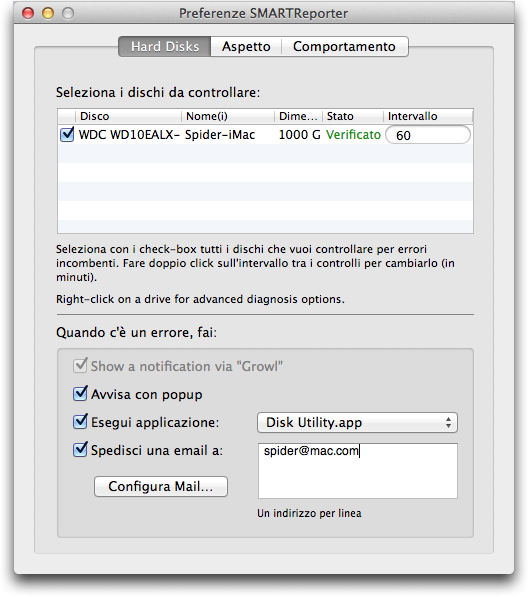

status, so we are reliant on OS X giving us timely warning of the issue. None of us sits with our eyes glued to S.M.A.R.T. status changes to warn of imminent failure of a drive, it is not always clear that your Mac will pass the message on before the drive fails. may not be smart enough to overcome Sod’s Law. So it is all a game of chance, and S.M.A.R.T. When those warnings occurred, prior to drive failure, only some of the variables measured correlated well with drive failure, and even they did not predict the majority of drive failures. Second, studies of drive farms which are worked much harder than drives in regular computers, such as those at Google, show that over a third of drive failures occur without any S.M.A.R.T. should prove most useful, if you do not replace your drives once their warranty runs out. That varies considerably between batches of drives, but for good manufacturers is usually safely beyond their warranty period. Once that early high rate falls, very few drives fail until they approach the end of their reliable working life. A graph of drive failure rates with time shows a ‘U’ shape, with early failures which are not associated with wear or tear, and likely to appear out of the blue. is not quite so impressive.įirst, drive failures do not only occur as a result of wear and tear. More advanced tools give you access to the performance history of the drive, and the set thresholds at which it will report that failure is expected. status is OK, or the drive appears to be failing. The most basic information available is that shown in Disk Utility: whether the S.M.A.R.T. You may only be aware of this if you use an advanced tool to query the S.M.A.R.T. system detects sector errors, for example, it will try to repair them as it goes along. include disk self-repair when the S.M.A.R.T.

The most recent implementations of S.M.A.R.T. So in practice they are only usable with internal drives, and those mounted in more sophisticated systems such as external RAID, NAS, and SAN devices. status may not be accessible by the attached computer. The snag is that when they are housed in external enclosures and connected via FireWire or USB, S.M.A.R.T. was first introduced in the ATA standard just over ten years ago, and should thus be a feature of all modern SATA (serial) and PATA (parallel) hard drives. This is a bit like monitoring your body temperature when you think you might have flu coming, in the expectation that a rise in temperature will precede the infection becoming more manifest, and will allow you to turn the alarm off and go back to sleep instead of going to work. If you then monitor aspects of the disk which deteriorate as a result of the same wear and tear, then as those variables start looking ominous, you will be able to anticipate more significant failure. The theory goes that the majority of drive failures should occur as a result of wear and tear. – which generally seems to appear so punctuated – stands for Self-Monitoring, Analysis and Reporting Technology, and is built into the firmware of most modern hard drives in an effort to try to detect imminent failure before it happens.
SMARTREPORTER MAC 2. UPDATE
Virex 14: definition (DAT) and engine update for v7.x.S.M.A.R.T. Symantec NAV/SAV virus def Mar 15: for 9.x and 10.x.
SMARTREPORTER MAC 2. MAC OS X
PortableOSX 0.0.1: install a stripped down copy of Mac OS X on portable drives.
SMARTREPORTER MAC 2. FOR MAC OS X
The new release has support for Mac OS X 10.4.9. MainMenu 1.7.1: system management menu bar app. This release features screen control via the Auto HelpMate connection manager.įileXaminer 2.6.1: get info tool w/batch mode and contextual menu. Mac HelpMate 2.1: repair, diagnose, tweak, screen sharing and control. This release adds the ability to check for updates automatically. SMARTReporter 2.2.5: warns of ATA drive failure before it happens. This release adds a startup routine that verifies and corrects ownership and permissions on "/private/tmp" and "/Library/Application Support" directories and fixes potential bug causing problems with font caches on Mac OS X 10.4.9. Cocktail 3.7.5: (Tiger Edition) general purpose system modify/repair utility.


 0 kommentar(er)
0 kommentar(er)
